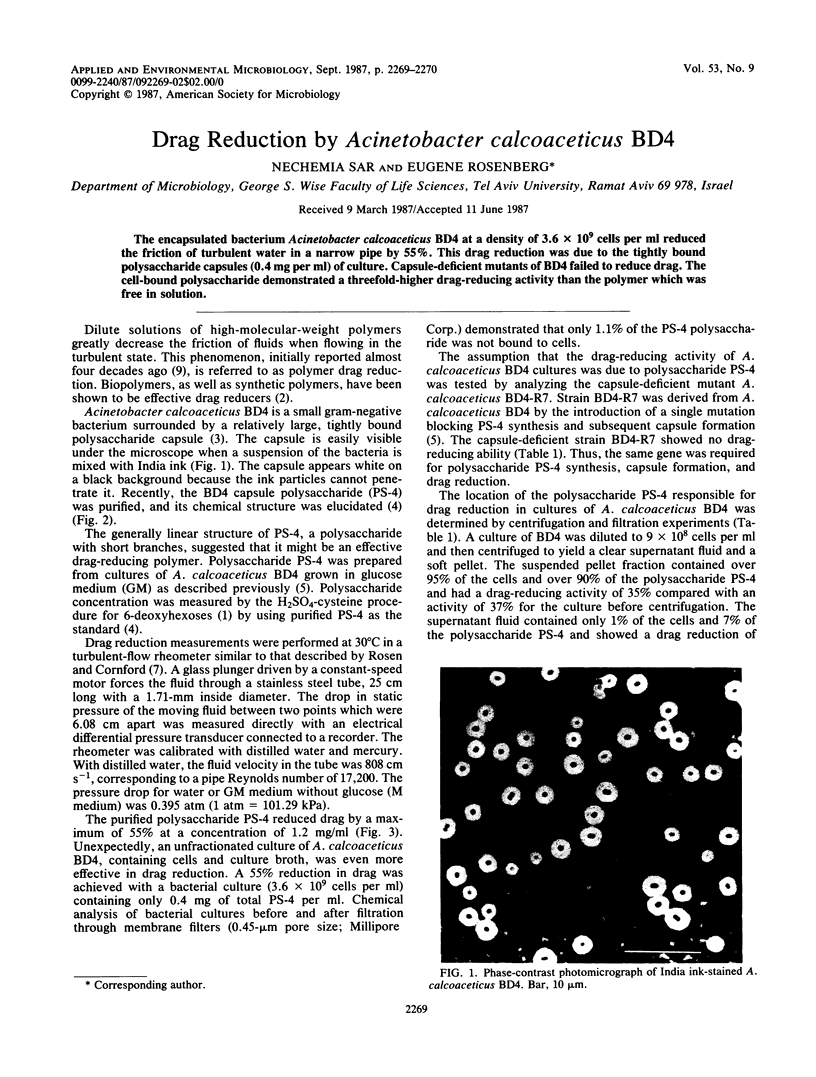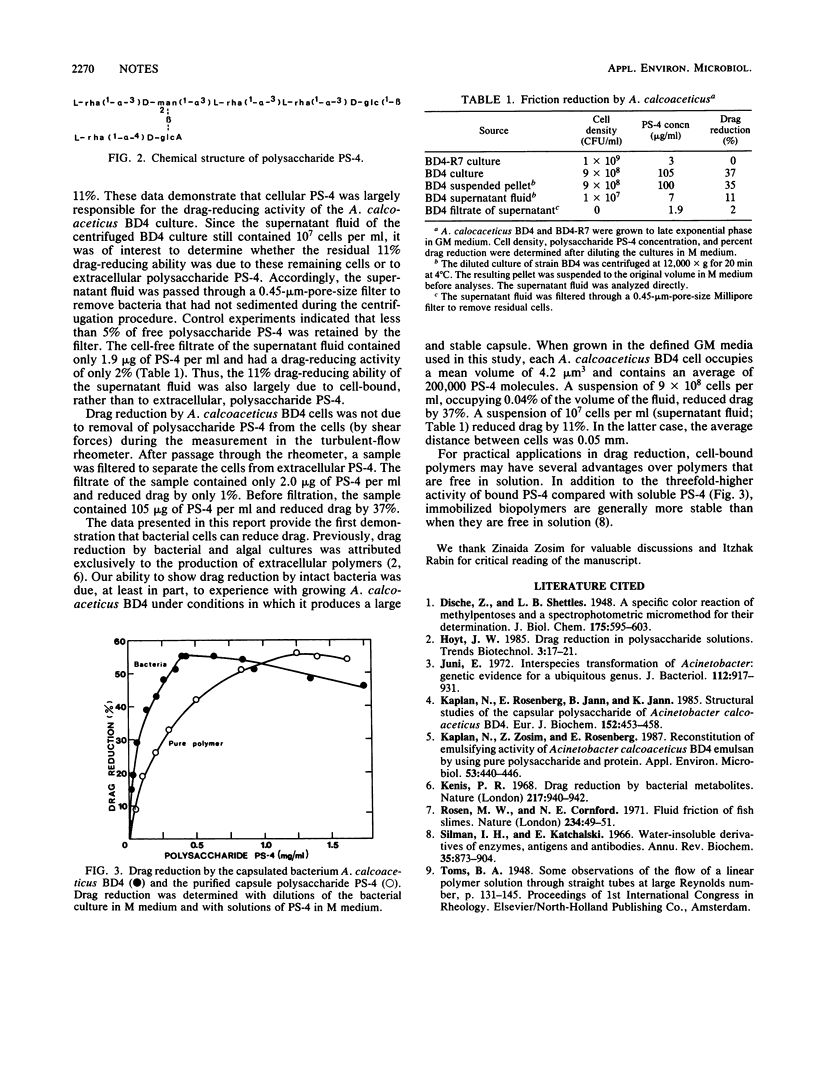Abstract
The encapsulated bacterium Acinetobacter calcoaceticus BD4 at a density of 3.6 X 10(9) cells per ml reduced the friction of turbulent water in a narrow pipe by 55%. This drag reduction was due to the tightly bound polysaccharide capsules (0.4 mg per ml) of culture. Capsule-deficient mutants of BD4 failed to reduce drag. The cell-bound polysaccharide demonstrated a threefold-higher drag-reducing activity than the polymer which was free in solution.
Full text
PDF

Images in this article
Selected References
These references are in PubMed. This may not be the complete list of references from this article.
- Juni E. Interspecies transformation of Acinetobacter: genetic evidence for a ubiquitous genus. J Bacteriol. 1972 Nov;112(2):917–931. doi: 10.1128/jb.112.2.917-931.1972. [DOI] [PMC free article] [PubMed] [Google Scholar]
- Kaplan N., Rosenberg E., Jann B., Jann K. Structural studies of the capsular polysaccharide of Acinetobacter calcoaceticus BD4. Eur J Biochem. 1985 Oct 15;152(2):453–458. doi: 10.1111/j.1432-1033.1985.tb09218.x. [DOI] [PubMed] [Google Scholar]
- Kaplan N., Zosim Z., Rosenberg E. Reconstitution of emulsifying activity of Acinetobacter calcoaceticus BD4 emulsan by using pure polysaccharide and protein. Appl Environ Microbiol. 1987 Feb;53(2):440–446. doi: 10.1128/aem.53.2.440-446.1987. [DOI] [PMC free article] [PubMed] [Google Scholar]
- Silman I., Katchalski E. Water-insoluble derivatives of enzymes, antigens, and antibodies. Annu Rev Biochem. 1966;35:873–908. doi: 10.1146/annurev.bi.35.070166.004301. [DOI] [PubMed] [Google Scholar]




